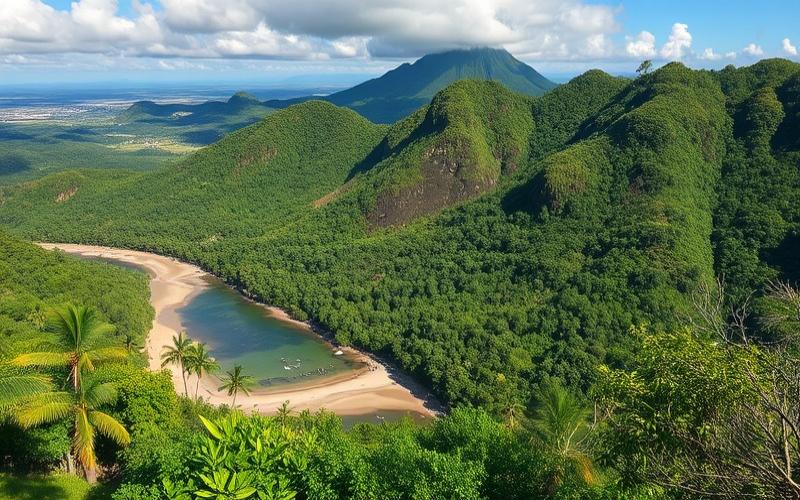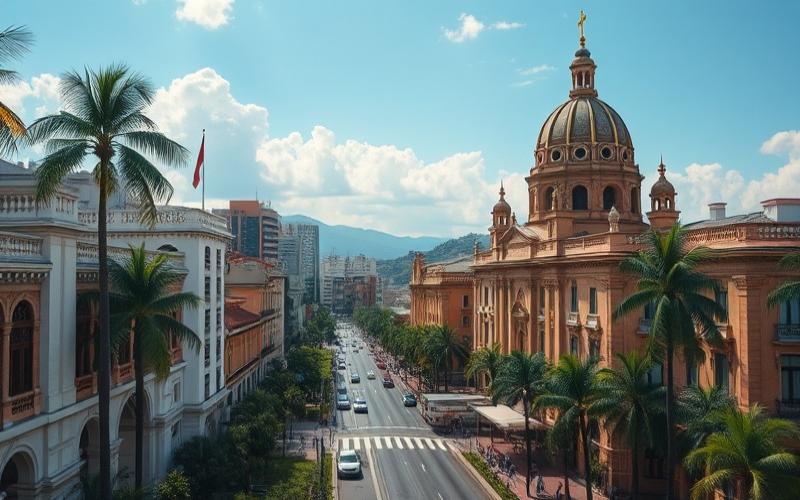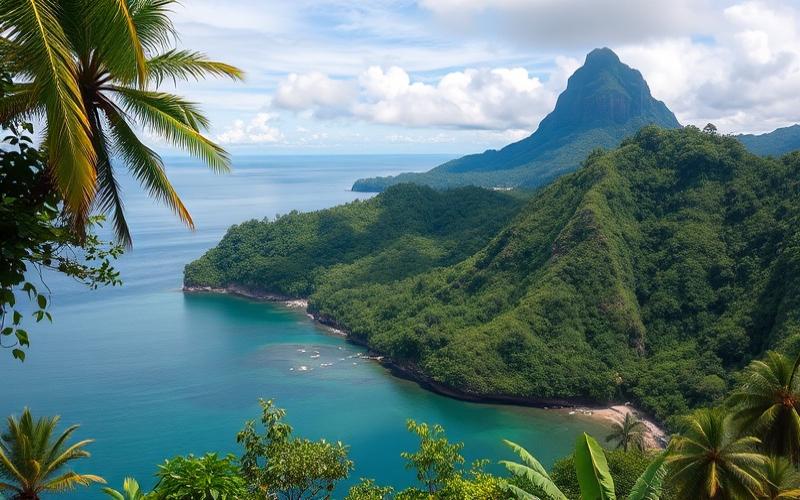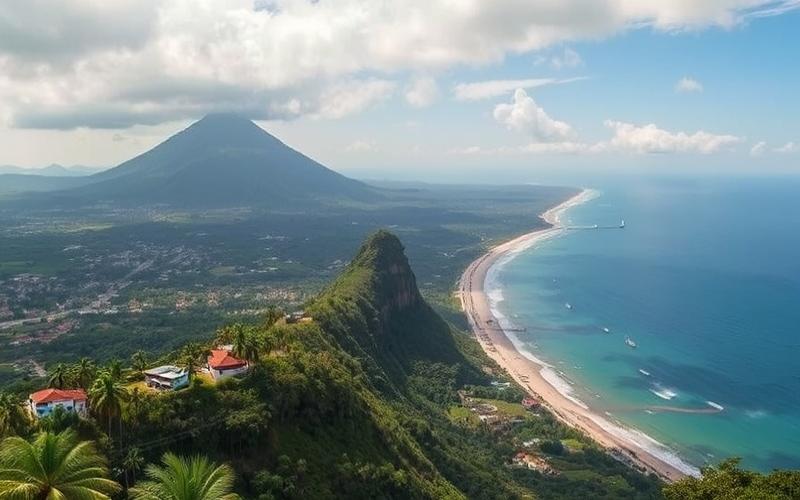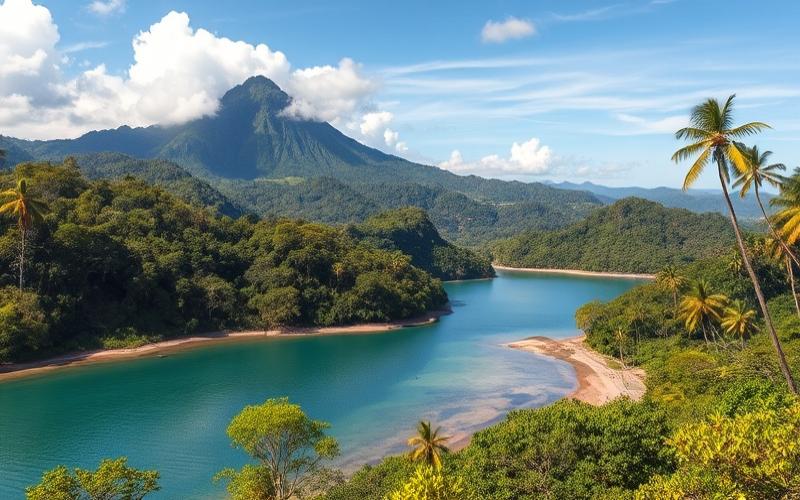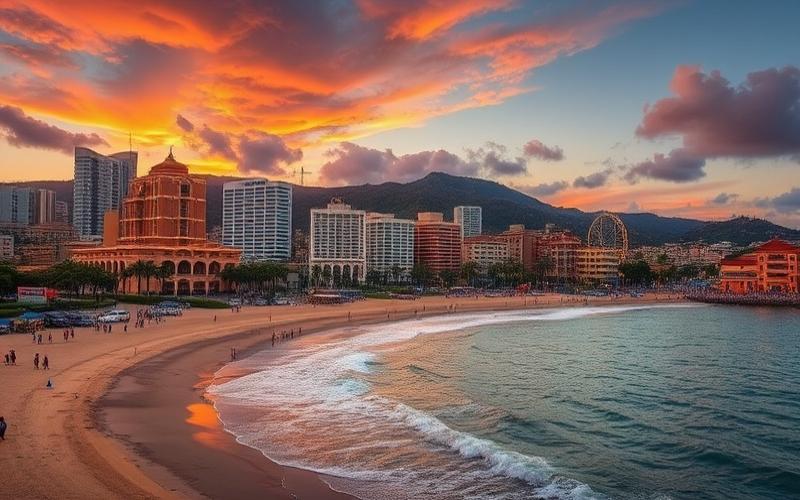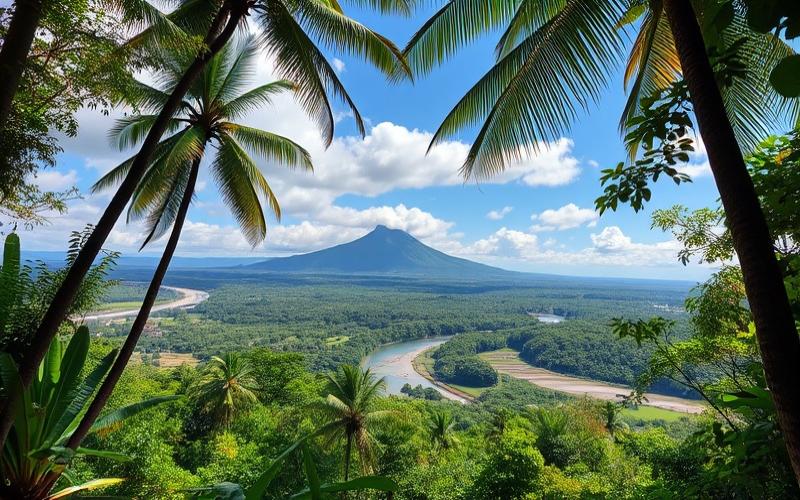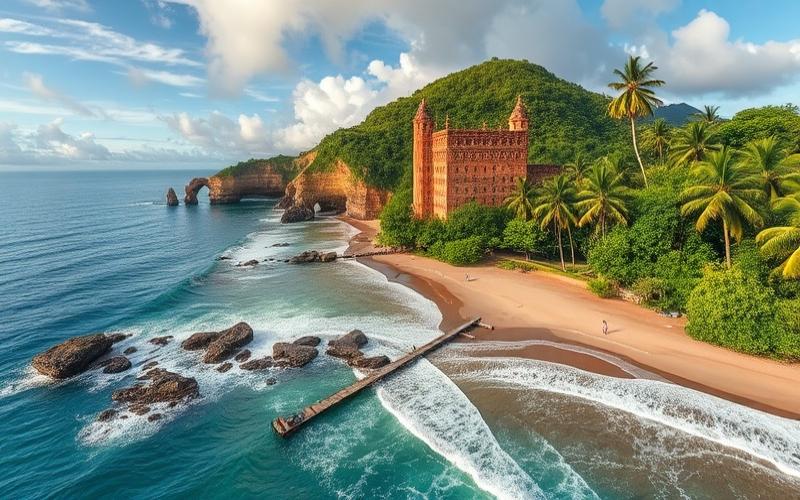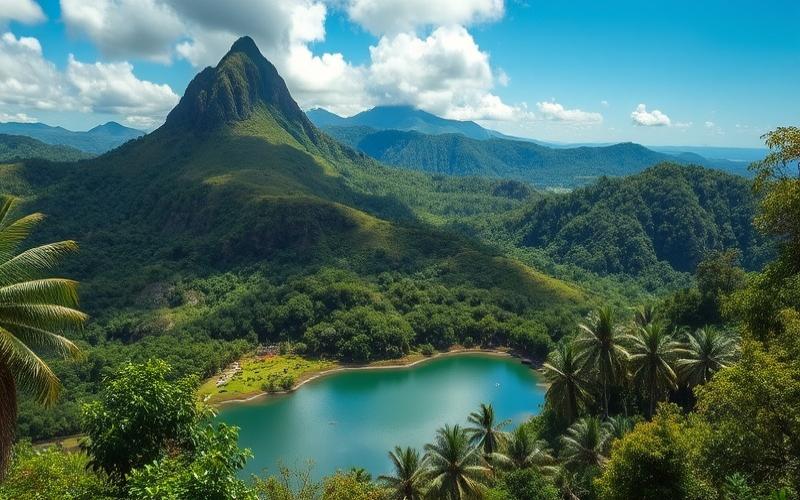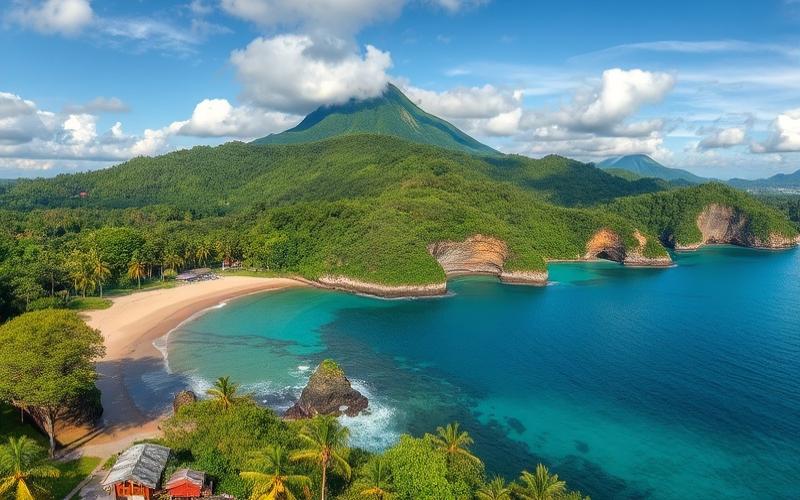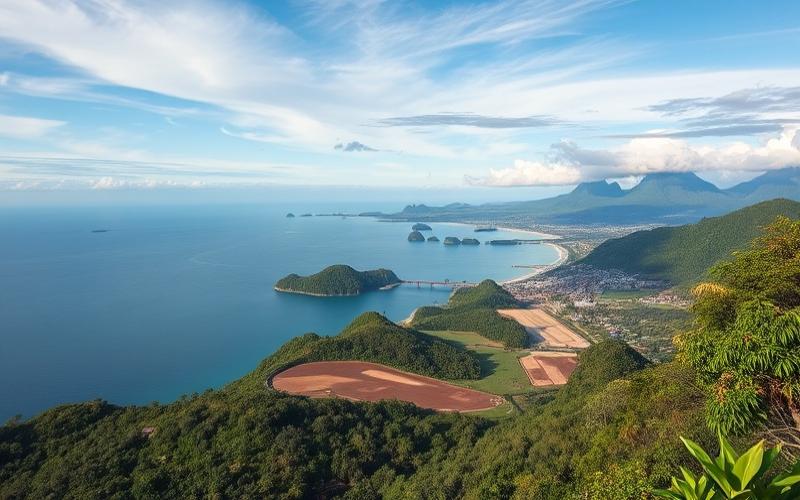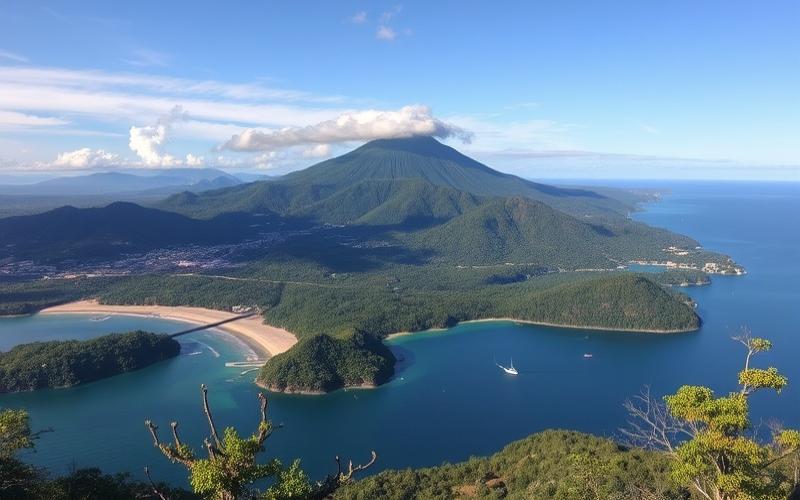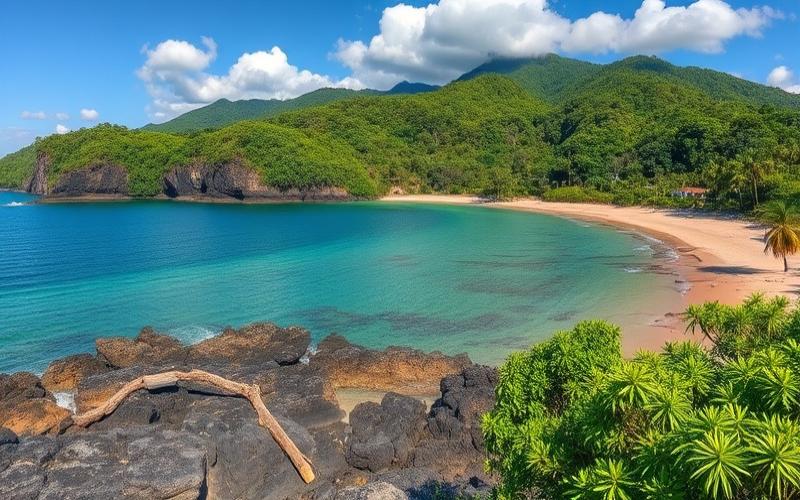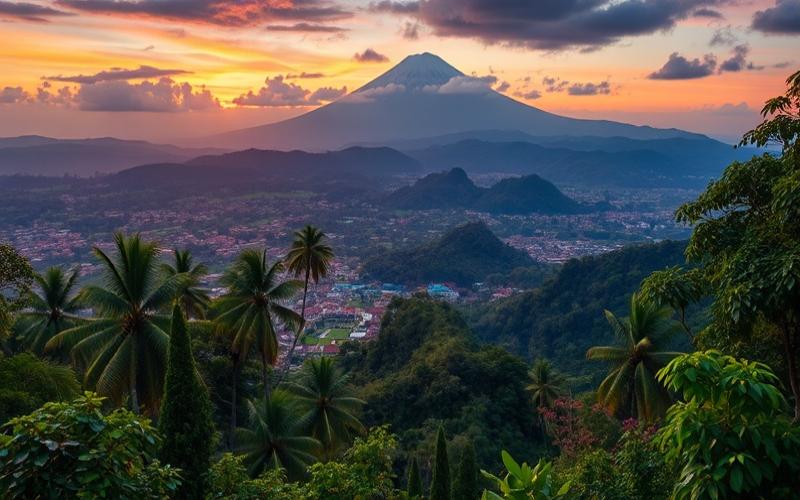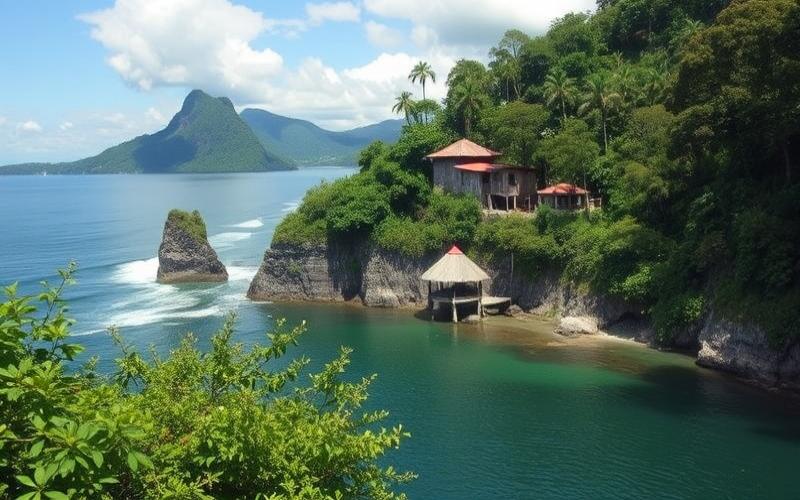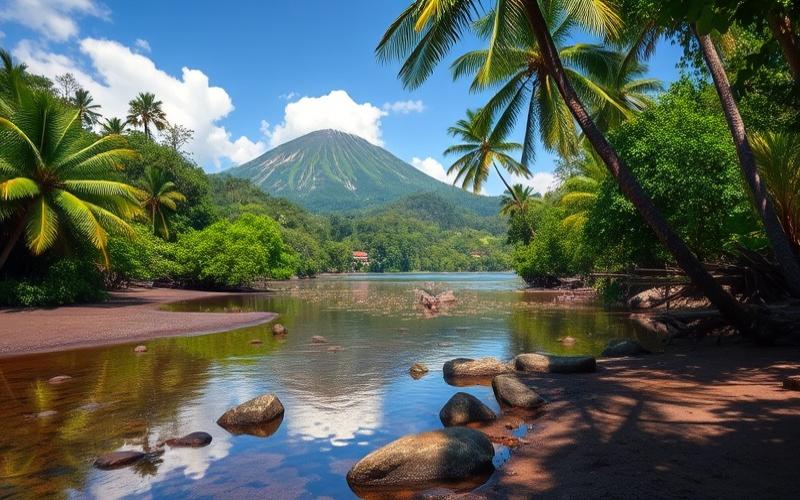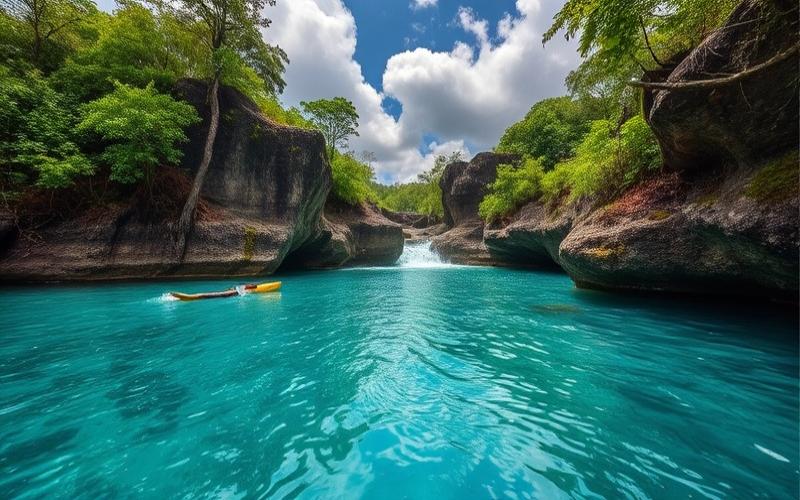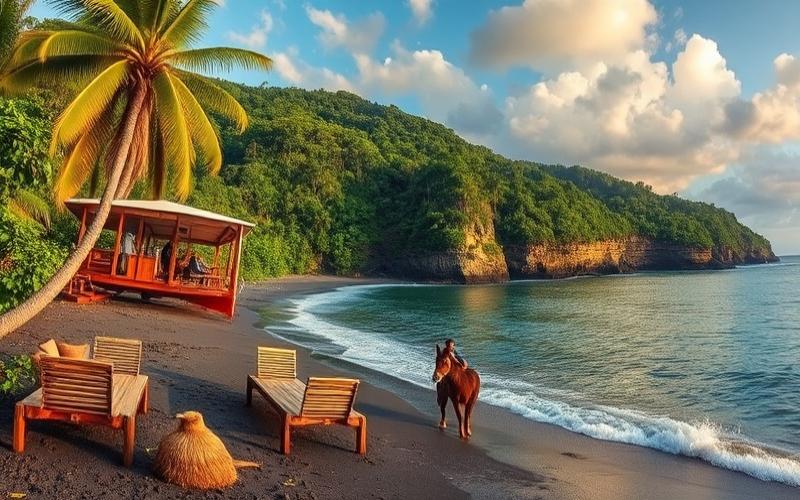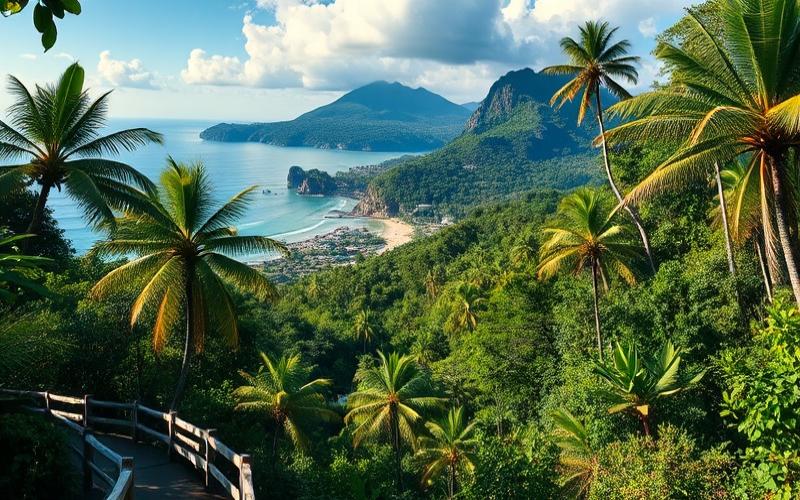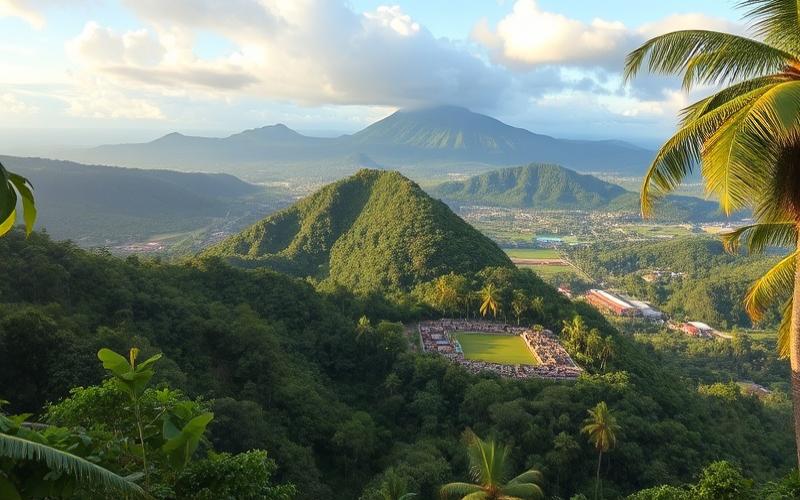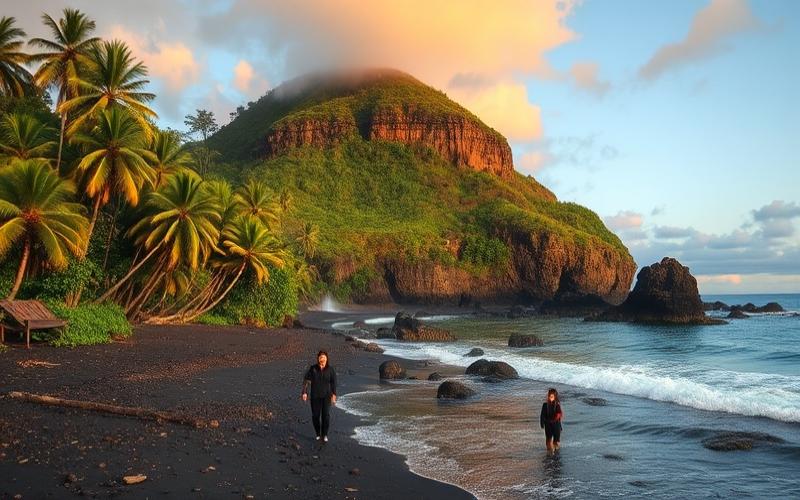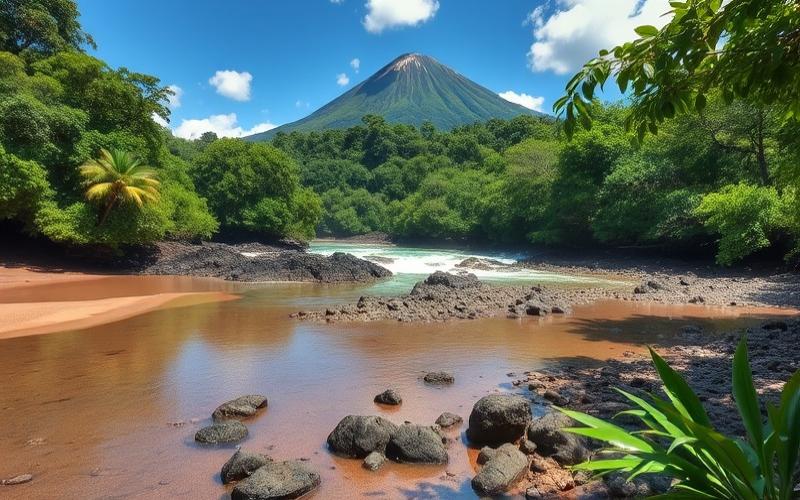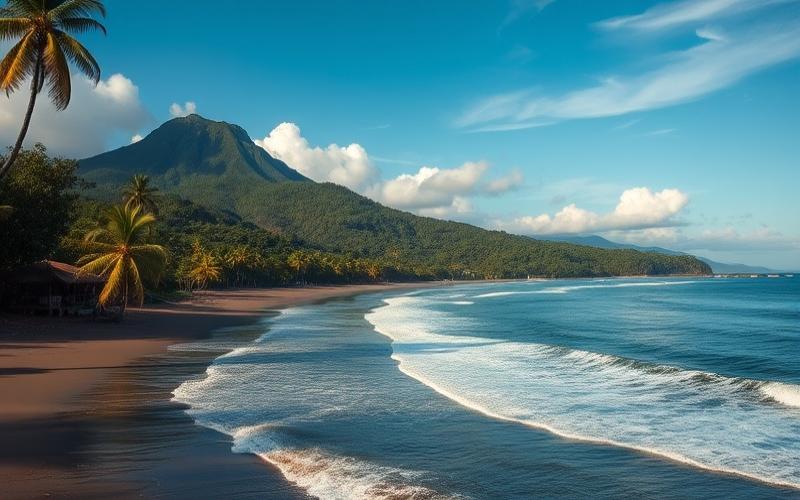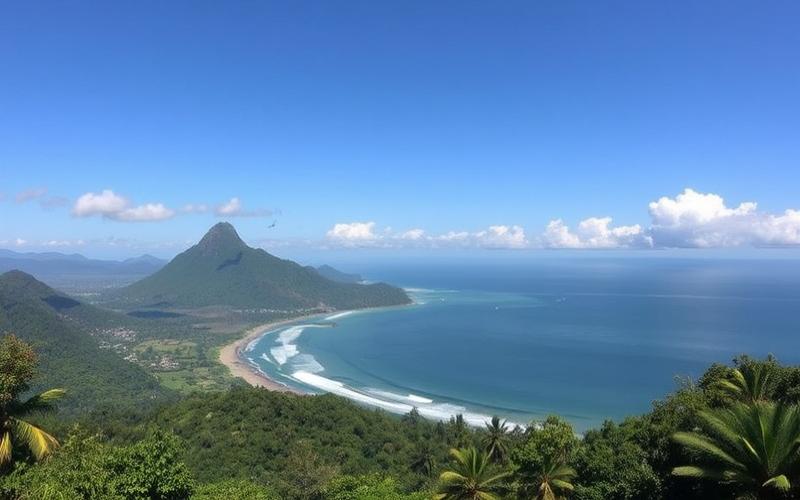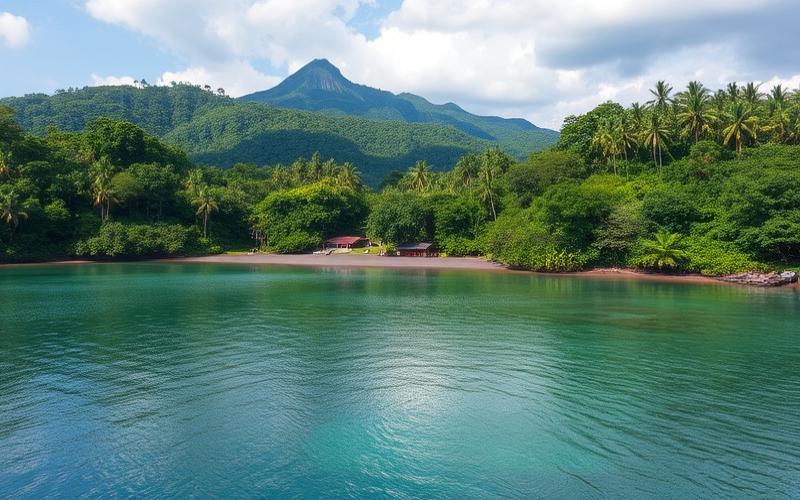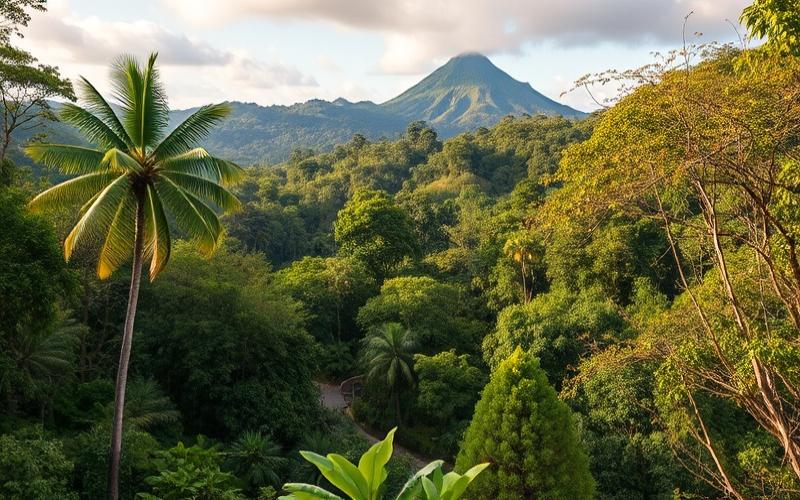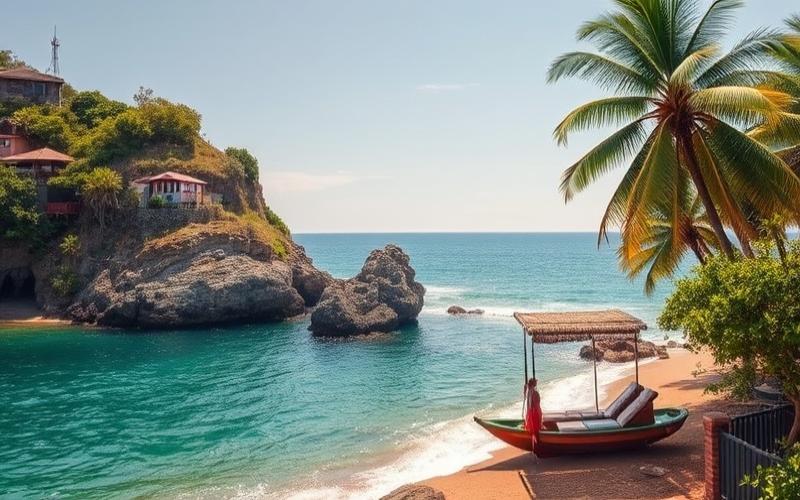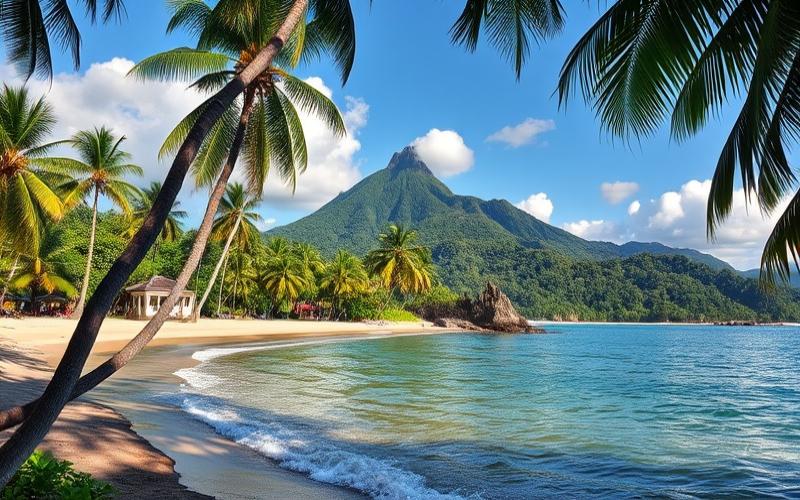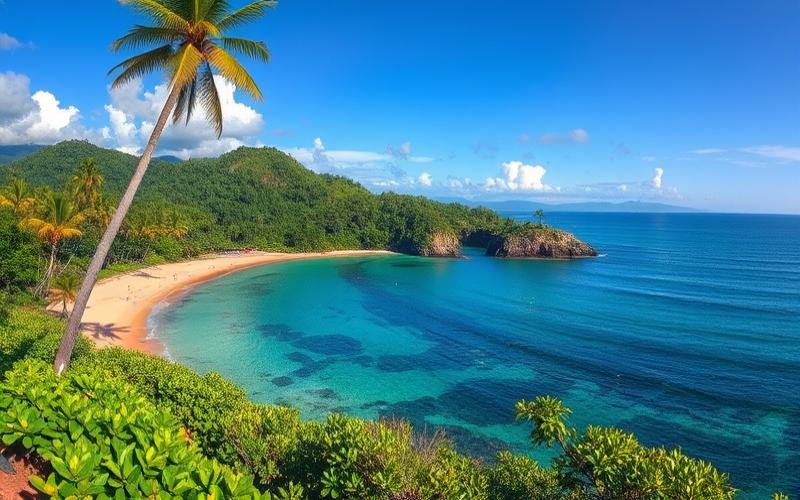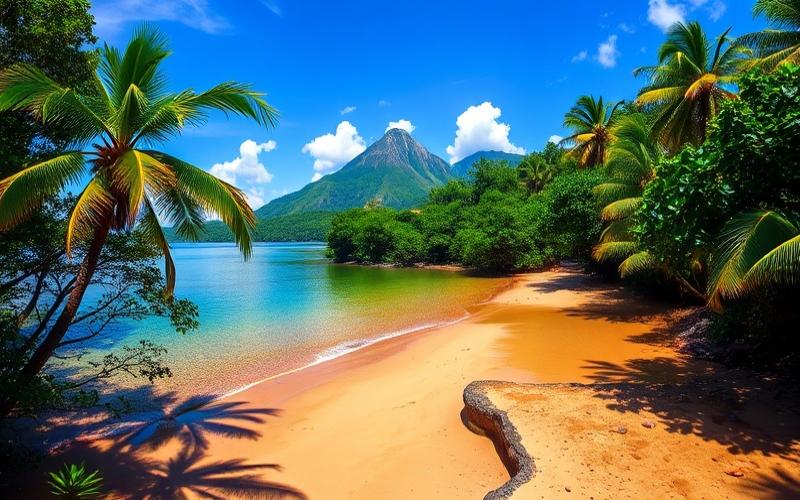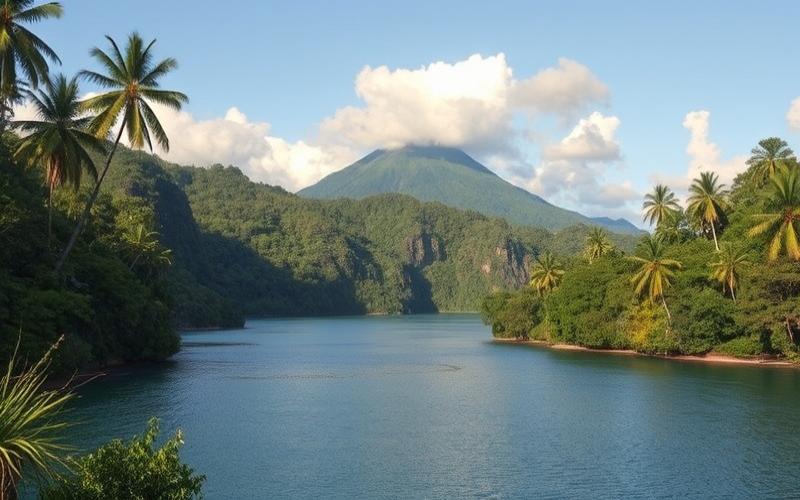
 Published on and written by Cyril Jarnias
Published on and written by Cyril Jarnias
Real Estate Purchase in Costa Rica
Real estate purchase in Costa Rica attracts many foreigners drawn to the natural beauty, political stability, and pleasant climate of this Central American country. However, navigating the property acquisition process can prove complex for those unfamiliar with the local legal and tax system.
Guide to Successful Investment
This article provides a detailed guide on the steps to follow for successful investment, covering crucial aspects such as:
- Property search
- Title verification
- Tax implications
- Specifics of purchase contracts
Discover how to turn the dream of owning a home in Costa Rica into a tangible reality while avoiding common pitfalls through our expert advice.
Good to know:
Costa Rica offers rare political stability in Central America, making it a preferred destination for foreign real estate investors.
Real Estate in Costa Rica: Regulations and Obligations for Foreigners
Foreigners can purchase and own most types of real estate in Costa Rica with the same rights as Costa Rican citizens, except for specific restrictions concerning properties in maritime zones, border areas, or concessions.
Types of Properties Accessible to Foreigners:
- Titled land and houses: unrestricted access, in personal name or through a corporation.
- Properties in maritime zones (200-meter coastal zone): only a maximum of 49% can be owned by a foreigner in a concession.
- Properties located near borders, river mouths, or natural reserves: subject to specific restrictions or special permits.
| Property Type | Access Rights for Foreigners | Specifics / Restrictions |
|---|---|---|
| Titled land / titled house | Yes, without restriction | Same rights as citizens |
| Property in maritime zone | Yes, but max. 49% | Municipal concession required |
| Property near borders | Limited or restricted | Special permits needed |
| Property in natural reserve | Limited or restricted | Development restrictions |
Legal Requirements When Purchasing:
- Mandatory representation by a Costa Rican attorney, who also acts as a public notary.
- Signing of the transfer deed before a notary.
- Registration of the transaction with the National Registry to guarantee legal security of the property title.
- Prior verification of the title and cadastral status with the Public Registry (Registro Nacional).
Simplified Purchase Process:
- Agreement on price and conditions.
- Verification of property title at the National Registry.
- Drafting of the deed by a Costa Rican attorney-notary.
- Signing of the deed before a notary.
- Registration with the National Registry.
Tax Obligations for Foreign Owners:
- Payment of annual property tax (0.25% of the property’s fiscal value).
- Payment of luxury tax, if applicable.
- Payment of municipal fees (services, waste collection, etc.).
- Declaration and payment of capital gains tax upon resale.
Role of the Public Registry (Registro Nacional):
- Centralizes and secures all property titles.
- Allows online or in-person consultation to verify:
- Owner identity
- Possible liens or mortgages
- Limitations or easements affecting the property
Areas with Specific Restrictions:
- Maritime zone (200 meters from high tide line): the first 50 meters are inalienable (public domain), the next 150 meters are subject to time-limited municipal concessions. A foreigner cannot own more than 49% of a concession company.
- Border areas and reserves: acquisition is regulated, sometimes prohibited or requiring special permits.
Differences in Rights Between Citizens and Foreigners:
- No difference for purchasing titled land or standard real estate.
- Only maritime zone concessions impose a 49% foreign ownership limitation.
Key takeaway: In Costa Rica, access to real estate ownership is largely open to foreigners, provided legal procedures are followed, a local attorney-notary is engaged, and specific restrictions in sensitive areas (coastline, borders, natural reserves) are considered.
Good to know:
In Costa Rica, foreigners enjoy property rights similar to citizens, allowing them to purchase real estate in most regions, except for government coastal zones and certain border areas where restrictions apply. It is mandatory to hire a Costa Rican attorney to oversee transactions and ensure all documents are in order, including title verification through the National Registry. Foreign investors must also comply with tax obligations, including payment of property transfer tax and annual property taxes. Properties under concession and within the first 200 meters of the coastal zone require special attention, as they are subject to specific regulations regarding ownership and use. A competent attorney is essential to navigate the country’s legal subtleties and ensure a smooth acquisition.
Understanding International Taxation for Your Real Estate Purchase in Costa Rica
Basic Principles of International Taxation in Costa Rica
Costa Rica applies a taxation system based primarily on the territoriality principle: only income generated within the country is taxable. This means foreigners and non-residents are taxed only on their income from activities or investments located in Costa Rica.
Double Taxation Agreements Signed by Costa Rica
To date, Costa Rica’s network of Double Taxation Avoidance Agreements (DTAAs) remains limited but strategic. The signed agreements mainly concern:
| Country | Date/Effective Date | Main Effects for Real Estate Investors |
| Spain | 2010 | Reduction of withholding taxes, prevention of double taxation on rental income and capital gains |
| Germany | Since 2020 | Preferential treatment of rental income, reduced tax rate |
| Mexico | Since 2020 | Specific regulation of real estate gains |
| United Arab Emirates* | Most recent | Similar benefits for dividends and investments |
*List may change according to tax updates.
These agreements generally allow:
- Avoiding the same income being taxed twice (in the owner/investor’s home country AND in Costa Rica).
- Reducing certain withholding taxes (e.g., on rental income or real estate capital gains).
- Obtaining clarification on tax rights allocation between states.
For example, a German investor renting a property in Jacó could benefit from a reduced withholding rate on locally received rental income thanks to the Germany-Costa Rica treaty.
Influence of Agreements for Foreign Buyers
Tax treaties can influence several decisions:
- Tax optimization: choosing an appropriate structure to minimize overall tax burden.
- Legal predictability: securing financial flows with fewer unexpected tax risks.
- Estate or wealth planning: anticipating transfer or resale without undue double taxation.
Thus, a Spanish investor could confidently plan their real estate operations knowing they won’t have to pay tax twice on rental income received in Costa Rica if they comply with the bilateral agreement conditions.
Specific Taxes Related to Real Estate Transactions and Ownership
Here are the main taxes applicable during acquisition, ownership, and transfer of real estate:
| Tax Type | Current Approximate Rate | Tax Base |
| Property Tax (“Bienes Inmuebles”) | Approx. 0.25% per year | Municipal cadastral value |
| Real Estate Transfer Tax | 1.5% | Declared purchase price |
| Rental Income Tax | Progressive up to 25% | Net rental income |
Other points:
- When a non-resident sells their property, they may also need to pay capital gains tax.
- Declarative obligations exist with local tax authorities upon actual receipt of rental income or realization of gain upon resale.
Concrete example: A Mexican national buys a house valued at $200,000. They will pay about $3,000 (1.5%) as a one-time transfer tax. Each year they must pay $500 (0.25%) as municipal property tax. If they rent this property and generate $10,000/year net in legally declared tourist rental income, they will be taxed according to the progressive Costa Rican scale potentially up to 25% depending on their local tax status; however, thanks to agreements with Mexico, they can avoid – under conditions – a second taxation in their main country of residence.
Specific Tax Obligations for Non-Residents
- Mandatory annual declaration if receiving any Costa Rican income
- Payment of local (municipal) taxes + national taxes
- Compliance with administrative formalities: obtaining local taxpayer number
- Keeping transaction/transfer documentation
It is crucial for every foreign buyer to systematically consult a specialized tax advisor before any operation to avoid costly errors or future disputes with the Costa Rican tax administration
Good to know:
Understanding international taxation is crucial for foreigners wishing to purchase real estate in Costa Rica. The country has signed several double taxation agreements, notably with Spain and Germany, which can reduce or eliminate international taxes on real estate income. In Costa Rica, property tax is about 0.25% of the registered value, while the transfer tax amounts to 1.5% of the purchase price. Non-residents must pay income tax on rental income received, at a rate that can reach 15%. For example, a $100,000 real estate investment could generate approximately $250 in annual property tax and $1,500 in transfer tax. Consulting a tax advisor is essential to navigate these obligations and avoid complex legal implications, as tax laws can differ significantly from one’s home country.
List of Essential Documents for Acquiring Real Estate in Costa Rica
| Document | Description and Practical Tips |
|---|---|
| Valid Passport | All foreign buyers must present a valid passport to proceed with real estate purchase. This document is essential for any notarial or banking operation related to the acquisition. Verify that your passport is valid for the entire purchase process duration. |
| Residency Permit (if applicable) | A residency permit is not required to purchase real estate in Costa Rica. However, it may be requested for other administrative procedures (local bank account, taxation, etc.). It is recommended to consult an attorney about the benefits of obtaining this status based on your life or investment project. |
| Tax Identification Number (NIF) | Every foreign buyer must obtain a NIF to complete a real estate transaction. This procedure is done with the Costa Rican tax administration (Dirección General de Tributación). Expect to present your passport and sometimes a local address. The NIF is essential for property registration and any tax declaration related to the property. |
| Real Estate Purchase Agreement | This preliminary contract (Option to Purchase and Sale Agreement, SPA) sets the essential sale conditions (price, deadlines, contingencies). It is highly advised to have it drafted or reviewed by a Costa Rican real estate attorney to secure the transaction and avoid future disputes. |
| Property Verification | It is imperative to obtain a cadastral extract from the Registro Nacional. This document proves the legality of the property title, absence of mortgage or dispute, and specifies property characteristics (area, location, previous owners). Thorough verification helps prevent fraud and guarantees administrative compliance. |
| Proof of Funds | Financial institutions or the notary may require documents proving the buyer’s financing capacity: recent bank statements, fund certificates, international wire transfer proofs. Prepare these documents in advance to speed up the procedure and reassure all involved parties. |
| Notarial Power of Attorney | If you cannot be present during certain steps (signing, administrative procedures), it is common to designate a representative through a notarial power of attorney. This document must be authenticated and, if drafted abroad, apostilled and translated into Spanish by a sworn translator. |
| Final Sale Deed | The transaction must be formalized by an authentic deed before a Costa Rican notary, then registered with the Registro Nacional to ensure legal property transfer. Only this registration grants the buyer full property ownership. Ensure all documents are compliant before final signing. |
Practical Tips for Gathering These Documents:
- Contact a specialized Costa Rican real estate attorney early to anticipate requirements and avoid administrative pitfalls.
- Verify validity and compliance of all documents (translations, apostilles, legalizations if necessary).
- Allow sufficient time for obtaining the NIF and potentially opening a local bank account.
- Always require presentation of titles and property certificates before any fund advance.
- If absent, appoint a trusted representative via a notarial power of attorney compliant with Costa Rican legislation.
- Always request an independent technical and environmental verification to avoid post-acquisition surprises.
Good to know:
To acquire real estate in Costa Rica, foreign buyers must notably present a valid passport and, if applicable, a residency permit to simplify other administrative procedures. A tax identification number (NIF) is essential for any real estate transaction and can be obtained from local tax authorities. The real estate purchase agreement, representing a preliminary contract between buyer and seller, should be verified by a specialized attorney. It is crucial to obtain a cadastral extract via the Registro Nacional to confirm the property title is free of constraints like mortgages. Proof of funds, such as bank statements, is required to ensure the buyer has necessary resources. If the buyer is absent, a notarial power of attorney allows designating an agent to perform certain procedures. Finally, the final sale deed must be signed before a notary and registered with the Registro Nacional to officially transfer ownership. In summary, although the documents may seem numerous, proper preparation and professional assistance facilitate the purchase process in Costa Rica.
Owning Property in Costa Rica: Myth or Reality for Foreigners?
Legislation and Regulations on Real Estate Purchase by Foreigners in Costa Rica
Foreigners can purchase and own real estate in Costa Rica without restrictions and enjoy the same rights as Costa Rican citizens. Costa Rican law guarantees the acquisition, ownership, and sale of land, regardless of nationality or residency status. Purchases can be made in personal name or through a Costa Rican corporation, offering additional legal protection.
Main Restrictions
- Restrictions mainly concern property acquisition in maritime zones (first 200 meters from the coast), river mouths, areas near natural reserves, and offshore islands.
- In the maritime zone, only citizens or corporations majority-owned by Costa Ricans can obtain concessions.
Property Rights for Non-Residents
- Non-residents have the same property rights as citizens.
- Residency is not required to purchase or own property. Even a visitor with a tourist visa can become an owner.
Tax Advantages and Obligations
- Acquisition costs include transfer fees (1.5% to 3%), notary fees (approx. 1.25% of price), and annual property taxes (0.25% of fiscal value).
- No specific taxes for foreigners upon purchase.
- Owners may benefit from certain tax advantages if they create a local corporation to hold the property.
Key Steps in the Purchase Process
- Property Search: Selection via agencies, platforms, or local networks.
- Offer Submission: Written offer submitted to seller.
- Title Verification: Check with Registro Nacional to ensure title validity and absence of liens.
- Contract Signing: Before public notary, often accompanied by a deposit (typically 10%).
- Registration: Notary proceeds with property registration at Registro Nacional.
- Final Payment: Balance of price, associated fees and taxes.
Required Documents
- Valid passport or ID.
- Written purchase-sale agreement.
- Tax identification number (for corporations).
- Certificate of no debt on the property.
- Cadastral certificate (Plano Catastrado).
Summary Table of Steps and Documents
| Step | Main Document Required |
| Property Search | – |
| Purchase Offer | Written offer |
| Title Verification | Extract from Registro Nacional |
| Contract Signing | Passport, notarized contract |
| Registration | Cadastral certificate, notarized deed |
| Final Payment | Proof of payment, receipt |
Common Myths and Realities
- Myth: Foreigners cannot be full owners.
Reality: Foreigners have the same rights as citizens for titled properties outside maritime zones. - Myth: Residency is required to purchase.
Reality: No residency status is required; even tourists can purchase. - Myth: There are additional taxes for foreigners.
Reality: Taxation is identical for all owners. - Myth: The process is risky and opaque.
Reality: The registration system is centralized and secure, with notaries playing a key role in transaction transparency.
Why Many Foreigners Buy in Costa Rica?
- Dynamic real estate market with varied offerings: beaches, mountains, tropical forests.
- Pleasant climate year-round, with microclimates depending on regions.
- Attractive cost of living compared to Europe or North America.
- Political security and recognized legal stability.
- High quality of life: preserved environment, efficient healthcare system, welcoming population.
List of Reasons Cited by Foreign Buyers:
- Search for a natural and healthy living environment.
- Profitable rental investment (growing tourism).
- Retirement in the tropics with low tax pressure.
- Ease of integration thanks to international community.
Testimonials
“We bought a house near Tamarindo as non-residents. The process was transparent, our notary guided us at every step. The formalities were simple and we feel completely protected by the law.”
Sophie and Marc, France
“I thought it would be complicated as an American, but after verifying titles and working with a local agent, everything went smoothly. I now own an apartment with ocean view, registered in my name.”
James, United States
“Costa Rica won me over with its stability and welcome. Buying here was easier than I imagined. The procedures are clear and the market is very open to foreigners.”
Maria, Spain
Key Points to Remember
- Costa Rican laws offer high legal security for foreign buyers.
- The market is open, with few restrictions outside maritime or protected zones.
- Assistance by a notary and title verification are essential.
- Costa Rica attracts for quality of life, stability, and investment opportunities.
Costa Rica welcomes foreign investors with a secure legal framework and high transparency in real estate transactions.
Good to know:
In Costa Rica, foreigners enjoy the same property rights as citizens, with certain cases of coastal lands and forest reserves where restrictions apply. The law does not require residency to acquire real estate, but opening a local corporation is advised to simplify the process. Key steps include hiring an attorney to perform due diligence on the property title and registration with the National Registry. Cash purchases are often advantageous, as financing may be limited for non-residents. Contrary to some myths, property taxes are relatively low, and the cost of living and acquisition remains attractive. The country is prized for its tropical climate, security, and high quality of life. For example, Jane, a recent expatriate, testifies that the process was smoother than expected, especially thanks to effective local assistance. The market offers good value compared to Europe or the United States, explaining the growing enthusiasm among foreign investors.
Disclaimer: The information provided on this website is for informational purposes only and does not constitute financial, legal, or professional advice. We encourage you to consult qualified experts before making any investment, real estate, or expatriation decisions. Although we strive to maintain up-to-date and accurate information, we do not guarantee the completeness, accuracy, or timeliness of the proposed content. As investment and expatriation involve risks, we disclaim any liability for potential losses or damages arising from the use of this site. Your use of this site confirms your acceptance of these terms and your understanding of the associated risks.

